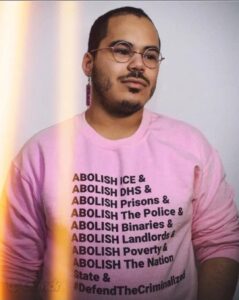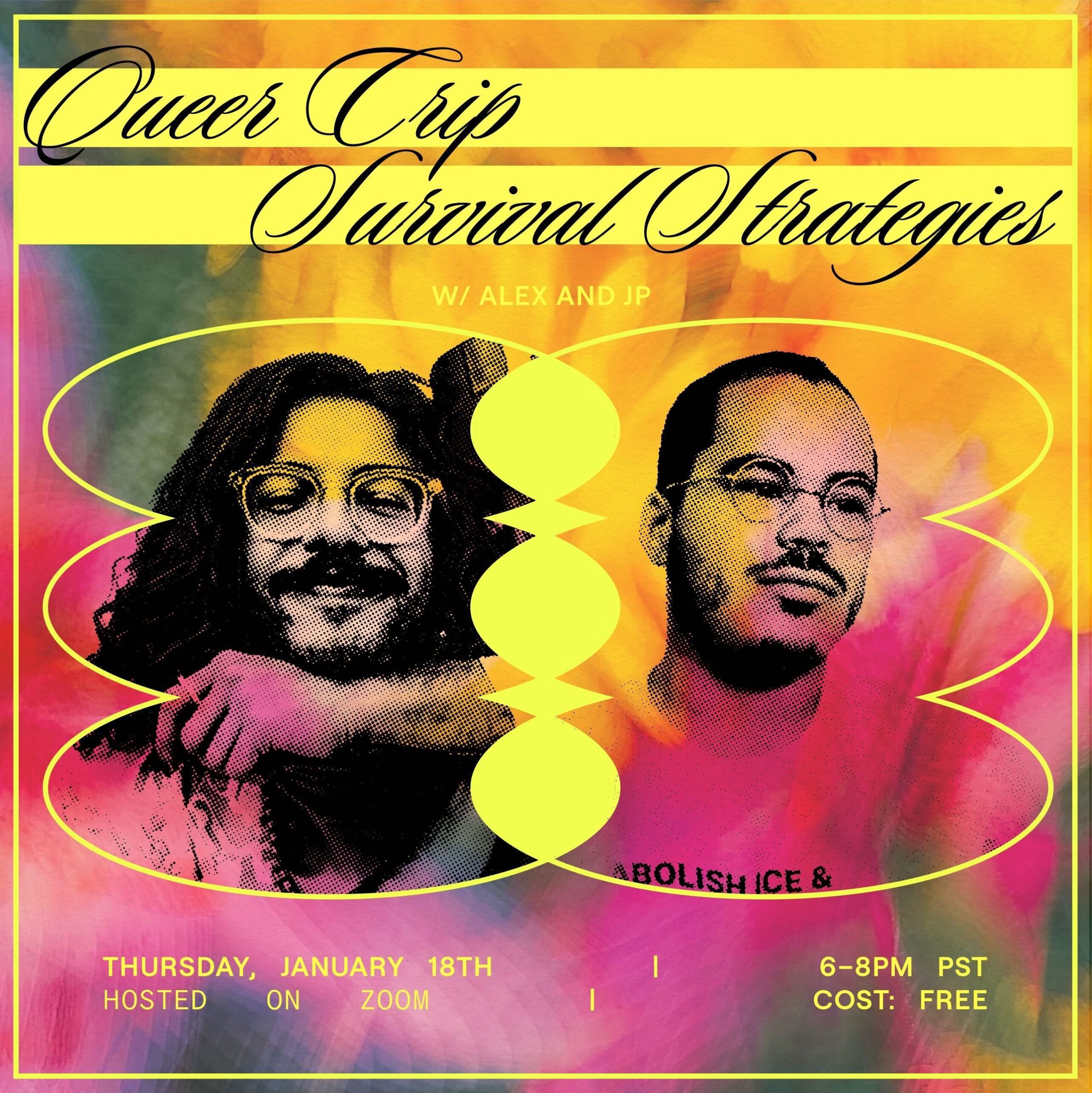Queer Crip Survival Strategies
Thursday, January 18, 6–8PM PST
On Zoom, link sent 24 hours prior
Free
Navigating academic spaces, and cultural institutions, can feel like a convoluted gauntlet, especially for multiply marginalized students & civilians alike. Concepts like barriers to entry, inclusion and belonging, and community engagement may be framed as keys paramount to the mission success at our institutions, but how do these institutions perpetuate exclusionary practices?
Rather than treating these issues as inherent problems for our communities to overcome, we could instead turn to frameworks, such as queer and crip survival strategies, to offer models for accessibility in these settings. With QTBIPOC folks navigating the impacts of racism compounded by homophobia, transphobia, and/or ableism, the inequities to achieve, thrive, and maintain wellness mount exponentially. In order to upend these dynamics and foster a more fruitful culture for learning, growth, and community building within academia and cultural institutions is imperative that we turn to the untapped wealth of knowledge within the communities most impacted by the sharp end of injustice.
Queer and crip survival strategies (such as mutual aid efforts, community skill sharing, and collective resourcing) offer a star chart for us to follow, as a guide for creating more accessible spaces. In this session we will be naming three sources of inequities that QTBIPOC students are likely to encounter in their journeys — food insecurity, public safety issues, and mental health issues — and will then highlight grassroot initiatives and institutions who have adapted these frameworks. For example, given the rise in anti-trans legislation and violence, universities should prioritize resourcing in the safety of their Trans students. A 2018 UCLA study concluded that Trans folks were four times more likely to encounter violent or material victimization than their cisgender counterparts. Higher education and cultural institutions have a responsibility to adopt effective models for public safety, such as the work of the Trans Defense Fund LA, which supports local trans-led collectives to lead community self defense and intervention demonstrations. We’ll close with group exploration of practical applications of these ideas and offer guidance on activating your respective spaces accordingly.
This session is intended for anyone invested in shaping environments to center the needs of those most marginalized and dreaming up best practices informed by revolutionary, justice-oriented, community models. Knowledge of queer theory and crip politics is beneficial, but not required.
ABOUT THE FACILITATORS
 Alex Locust is a community organizer, educator, and artist celebrating the work of disability justice activists as a North Star for collective liberation. Drawing on their background in group counseling, Alex fosters reflective spaces for heart work and connection rooted in equity and justice, centering the lived experiences of those most marginalized. With that approach, Alex seeks to highlight voices who have been silenced, erased, invisibilized, and ignored while also activating those with social power to recognize how to wield it to disrupt oppression and promote cultural shifts.
Alex Locust is a community organizer, educator, and artist celebrating the work of disability justice activists as a North Star for collective liberation. Drawing on their background in group counseling, Alex fosters reflective spaces for heart work and connection rooted in equity and justice, centering the lived experiences of those most marginalized. With that approach, Alex seeks to highlight voices who have been silenced, erased, invisibilized, and ignored while also activating those with social power to recognize how to wield it to disrupt oppression and promote cultural shifts.
 JP is an uptown cultural worker, artist, and consultant. Their work to uplift the histories and experiences of trans and people of varying mind-bodies, through practices of art making, mutual aid, and education. They work to bridge and uplift the experience of excluded peoples across various diaspora.
JP is an uptown cultural worker, artist, and consultant. Their work to uplift the histories and experiences of trans and people of varying mind-bodies, through practices of art making, mutual aid, and education. They work to bridge and uplift the experience of excluded peoples across various diaspora.
